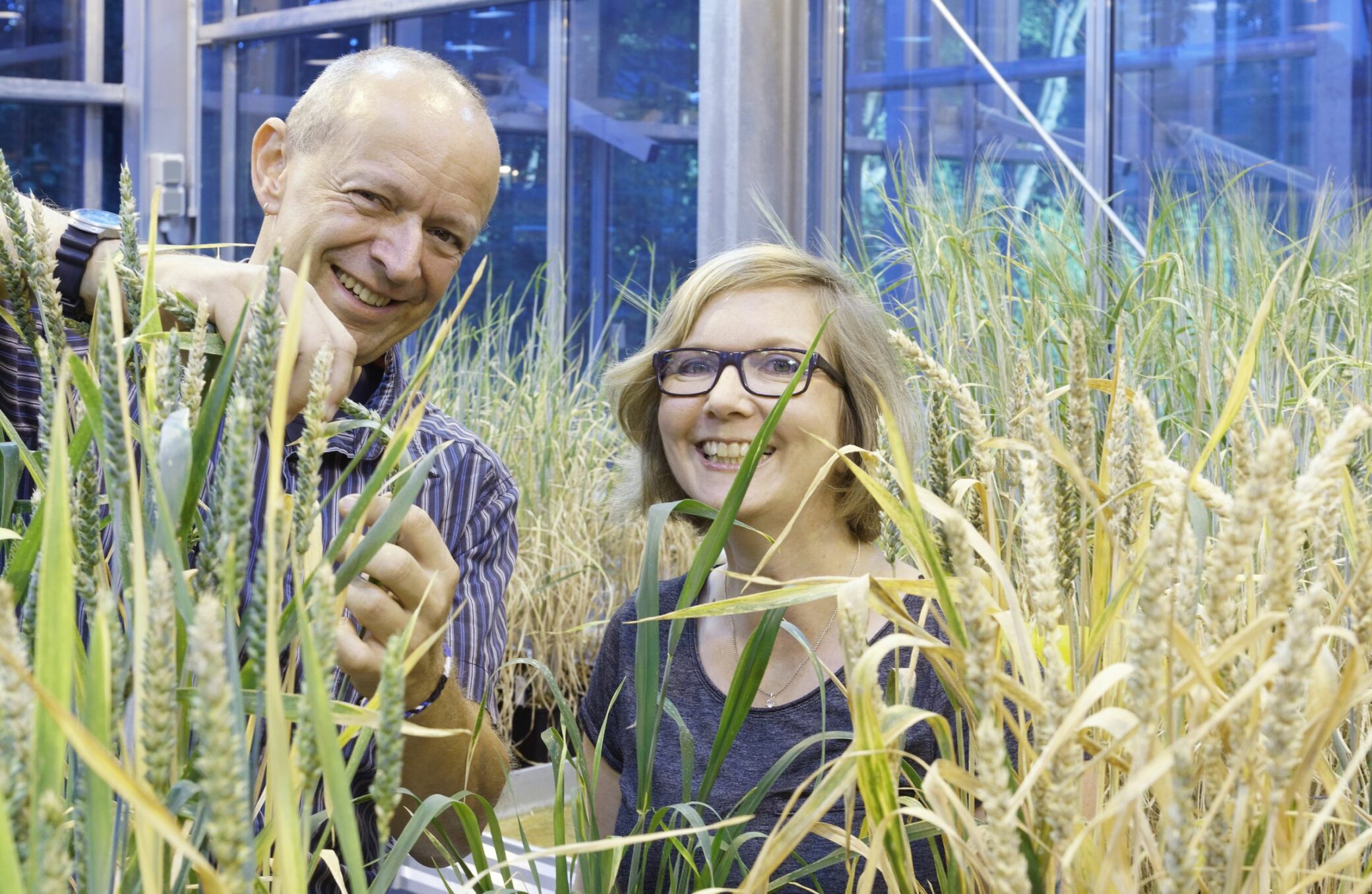Episode 9: Breakthrough in a long-fought battle – a group of RWTH researchers succeed in developing a strain of wheat resistant to powdery mildew.
Mildew repeatedly causes enormous losses of crop yield throughout the world. In the fight against this fungal infection, Professor Ralph Panstruga and his team of researchers at the RWTH Aachen University have made a decisive breakthrough. They have cultured a permanently resistant strain of wheat to serve as a base material for the development of new types of wheat.
Because transgenic solutions were not desired, and because, in the past, the mildew had soon overcome crossed resistances by changing itself, the team was looking for a permanent solution. The model was a certain strain of barley at the Institute of Biology I which has a missing protein in its genome. Without this protein, the mildew cannot spread its fluffy coatings over the plant. Unfortunately, wheat has a much more complex genome than barley.
From a plant research centre in Rothamsted near London, Prof. Panstruga’s team sourced wheat seeds that had been chemically treated to induce random mutations in their genomes. The scientists crossed plants from this pool in which one of the three copies of the target gene was defective. This elaborate process took several years to complete. But, in the end, they succeeded in creating what you might call an “original mutant” in whose genome all three copies of the decisive gene were defective. This represents the foundation on which permanently resistant wheat types will now be developed.
The fact that the protein responsible for the mildew was not completely shut down but rather damaged is actually an advantage. Plants without the protein age faster, shortening the maturation process and ultimately reducing the yield. The resistant wheat is currently being tested in outdoor trial fields.
And who invented it? A team of research scientists led by Professor Ralph Panstruga – at the RWTH Aachen University, of course.



